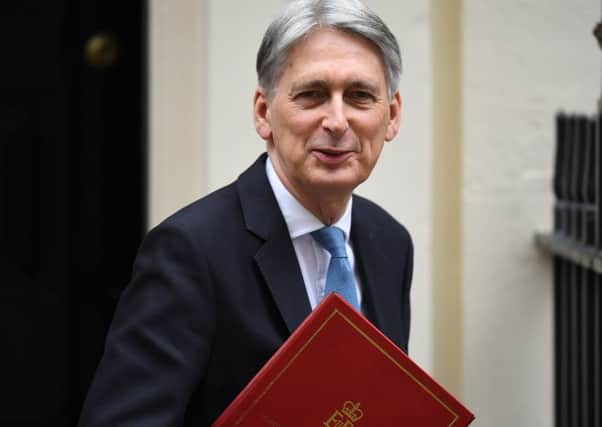Brexit: Even Philip Hammond seeme to think Theresa May should quit – Bill Jamieson


For all the upbeat presentation on the economy and replenished Treasury coffers, its memorable impact was political and twofold: first, a no-deal Brexit would mean “significant disruption” to the economy with “higher unemployment, lower wages and higher prices in the shops”, while making a deal would result in a “dividend”, which he hinted could mean spending increases and tax cuts totalling £26 billion.
The second was a none-too-veiled message to the Prime Minister: move on from your doomed deal and seek consensus on a different departure.
Advertisement
Hide AdAdvertisement
Hide AdThis was more politics than economics. Announcements ranged over a £3 billion “affordable homes guarantee”, measures on climate change, money for the border regions, £100 million for the police on knife crime and free sanitary products for English secondary schools. Fiscal numbers? Pah. This smacked of a pre-election manifesto.
He made much of latest Office for Budget Responsibility growth forecasts showing the economy growing 1.2 per cent this year, with the rate rising to 1.4 per cent for 2020 and to 1.6 per cent in the three years thereafter. Missing from this was that the OBR’s forecast was down from its 1.6 per cent estimate last October and that it would be the weakest since 2009.
As for the public finances, Hammond expects to borrow £22.8 billion this financial year, almost £3 billion lower than the £25.5 billion the OBR predicted in October, with further falls in the four years from 2021.
Now for decades the orthodoxy has been that economic growth would bring a fall in borrowing. But left unexplained was how borrowing is forecast to keep falling while growth marks time below two per cent. So let me join the dots. For this, we have to thank lower debt interest, higher tax receipts due to fiscal drag and non-indexing of benefits.
But it was the dire warning of setback combined with a promise of bumper “dividend deal” goodies – if his Prime Minister abandons her doomed plan and seeks a compromise – that marked out the Chancellor’s performance. Politics rules. “Move along, PM” seems to be the message if we want to get the show back on the road.
